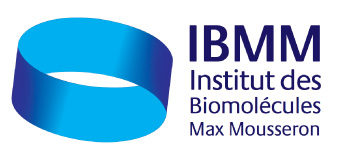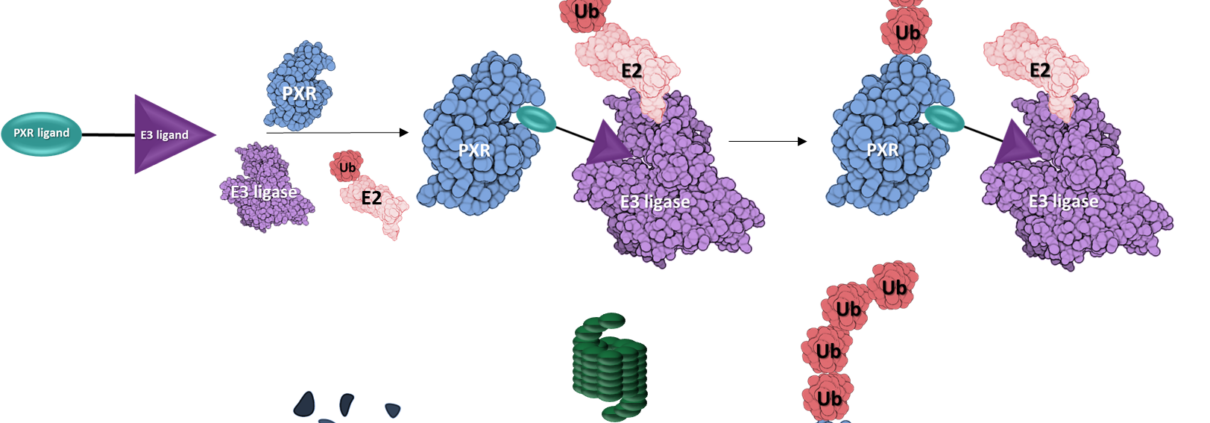PXR and Chemoresistance
Conventional medicinal chemistry strategies are particularly difficult to inhibit the nuclear xenobiotic receptor PXR. However, its role in the degradation of anticancer drugs, as well as chemoresistance and the progression of many types of cancer, makes it an appealing therapeutic target.
A first family of PROTACs (Proteolysis Targeting Chimera) has been successfully developed after 4 years of research and the implementation of an innovative chemical approach targeting the degradation of PXR, leading to the identification of a lead PROTAC (JMV7048). PROTACs are bifunctional molecules that are linked by a chemical spacer and consist of a target protein ligand and an E3 ubiquitin ligase recruitment ligand. PROTAC allows the two proteins to interact in space and induce ubiquitination of the target protein, resulting in its specific degradation by the proteasome. This study was conducted in collaboration with four Montpellier institutes: IBMM (Muriel Amblard and Guillaume Laconde IBMM Peptide Group), IGF (Julie Pannequin and Jean-Marc Pascussi), CBS (William Bourget and Vanessa Delfosse), and IRBM (Sabine Gerbal-Chaloin), and was funded by CNRS valorisation, SATT AxLR, UM, and ANR. The findings pave the way for new therapeutic approaches to sensitizing cancer cells to chemotherapies and reducing tumor recurrence.
They resulted in a patent: BIFUNCTIONAL PROTAC-TYPE COMPOUNDS TARGETING PXR, METHOD FOR PREPARING SAME, AND THERAPEUTIC USE THEREOF
Contacts
IBMM: Dr. Muriel Amblard ()
IGF: Dr. Jean-Marc Pascussi ()

